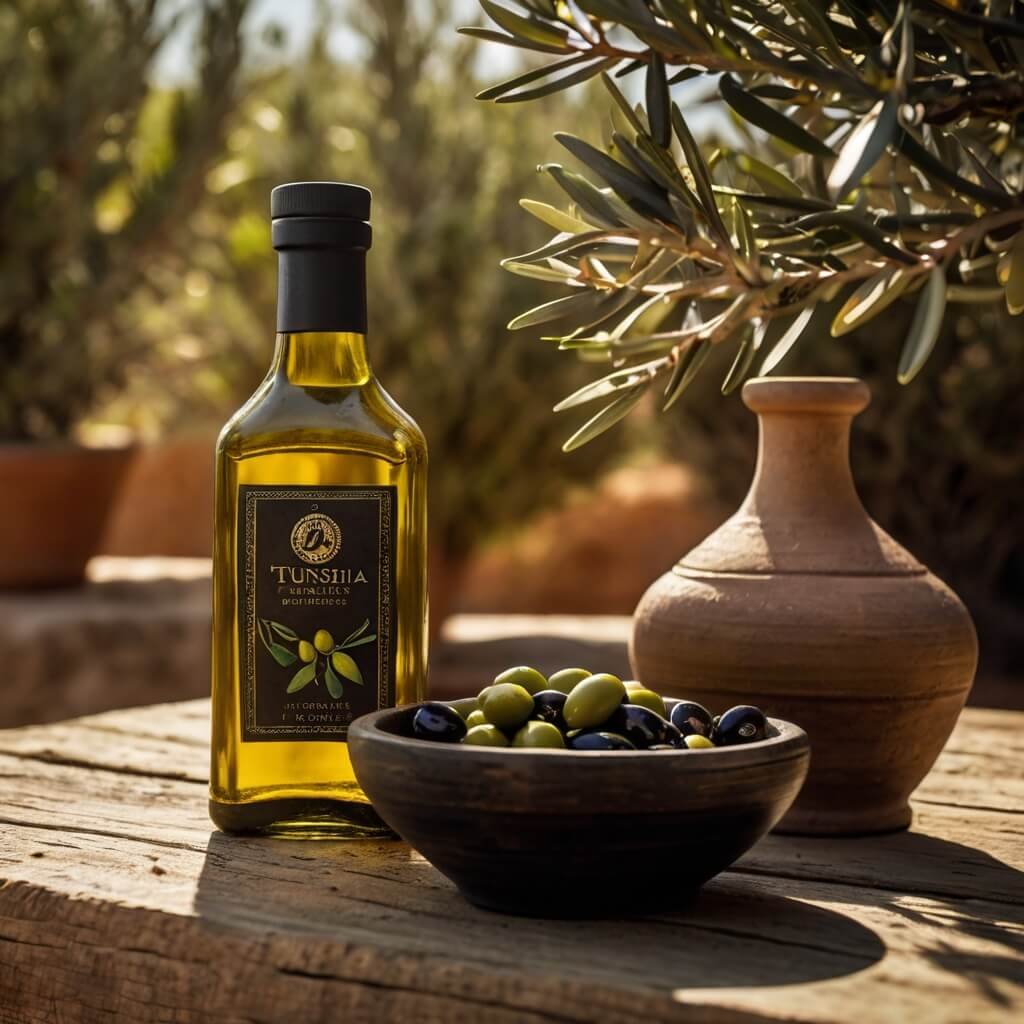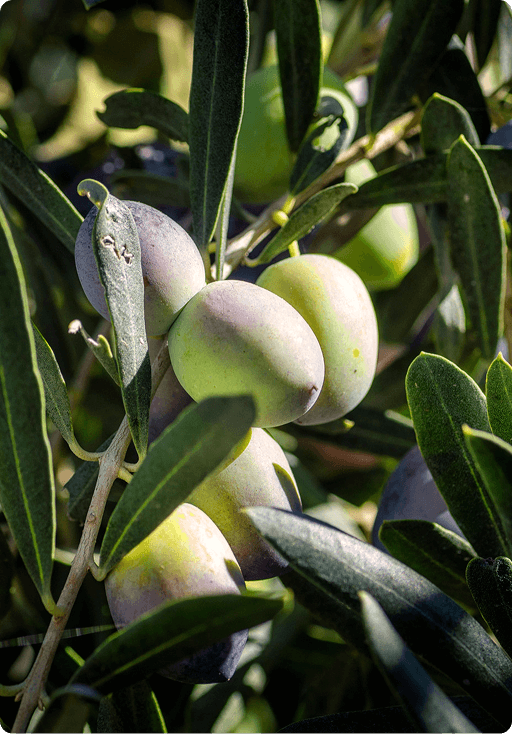
Polyphenols are naturally occurring compounds found in plants that have powerful antioxidant properties. In olive oil, these tiny molecules are responsible for a lot more than flavor. They protect your cells from oxidative stress, which is linked to aging, heart disease, and various chronic conditions. So when you drizzle olive oil on your salad, you’re not just adding taste; you’re dosing up on one of nature’s most underrated health boosters.
Tunisian olive oil, in particular, is often packed with polyphenols, thanks to a combination of the country’s climate, soil, and traditional production methods. This isn’t your average cooking oil; it’s a centuries-old superfood.
The Mediterranean climate of Tunisia, marked by long sunny days and mild winters, creates the ideal conditions for olive cultivation. But there’s more to the story. Tunisia has some of the oldest olive trees in the world, and many farms still use traditional, organic methods. This results in an oil that’s not only rich in taste but also in health-boosting compounds like polyphenols.
The main olive varieties grown in Tunisia, such as Chemlali and Chetoui, are naturally high in polyphenols. These olives are usually harvested early, which preserves more of the antioxidants that get lost in overripe fruit or industrialized processes.
Once inside the body, polyphenols act as scavengers of free radicals. These are unstable molecules that can damage your cells, proteins, and even your DNA. By neutralizing free radicals, polyphenols reduce inflammation, improve blood flow, and support immune function.
Research shows that diets high in polyphenols can:
This is why high-polyphenol olive oil isn’t just a food; it’s functional medicine.
Tunisian olive oil has been tested in various studies and has consistently shown high levels of hydroxytyrosol, oleuropein, and tyrosol, three potent polyphenols with massive health benefits. Hydroxytyrosol is particularly effective at reducing LDL (bad) cholesterol and protecting the heart.
Unlike some mass-produced olive oils that are filtered and refined, Tunisian olive oil is often cold-pressed and unfiltered, preserving its natural nutrient profile. This means you get more polyphenols per tablespoon, making it a smart choice for anyone prioritizing health.
A common myth is that olive oil loses all its nutrients when heated. While it’s true that excessive heat can degrade some polyphenols, many still survive typical cooking temperatures. The trick? Don’t deep-fry with it. Use Tunisian olive oil for sautéing, roasting vegetables, or finishing dishes. It adds flavor while keeping the polyphenols intact.
For maximum health benefits, use it raw. Drizzle it over salads, dip your bread in it, or add it to smoothies. Yes, smoothies. A tablespoon of Tunisian olive oil in your morning blend adds creaminess and a polyphenol punch.
Reading labels isn’t always enough. Many olive oils don’t disclose polyphenol levels. Look for terms like “early harvest,” “cold-pressed,” and “extra virgin.” Better yet, buy from brands that share lab results or third-party certifications.
The taste is another giveaway. High-polyphenol olive oils tend to be more bitter and peppery. That throat tickle? That’s the polyphenols doing their thing. In Tunisia, this is considered a sign of quality.
It’s not just your heart and brain that benefit. Polyphenols have been shown to improve skin elasticity, reduce inflammation, and even protect against UV damage. That’s why some high-end skincare products now include olive oil extracts, but why not just go to the source?
Topical use of Tunisian olive oil can moisturize and nourish your skin, while internal use gives your body the antioxidants it needs to glow from the inside out.
Tunisian olive oil isn’t just good for you; it’s often better for the planet too. Many small-scale farms use organic methods, conserve water, and avoid pesticides. Plus, supporting Tunisian olive oil producers helps sustain rural communities and preserve ancient agricultural practices.
This makes it not just a health choice, but a conscious one.
Recent studies have confirmed the superior antioxidant profile of Tunisian olive oil. A 2022 comparative study published in the Journal of Medicinal Food found that Tunisian varieties contained significantly higher levels of polyphenols than many European oils.
Another 2023 study analyzed the oleuropein content in Chetoui olives and concluded that early-harvest Tunisian oils outperformed even some premium Italian and Spanish brands in terms of antioxidant concentration.
These findings aren’t just academic; they’re a roadmap to better health.
So how much should you take? Studies suggest that 1 to 2 tablespoons of high-polyphenol olive oil per day can make a difference. Make it a habit. Replace other oils in your kitchen. Use it in your morning routine, in your lunch salad, and your evening meal.
It’s not about occasional use. Polyphenols work best as part of a consistent lifestyle.
Olive oil has been around for centuries, but not all olive oils are created equal. Tunisian olive oil stands out for its rich flavor, ethical production, and, most importantly, its high polyphenol content. If you’re looking for a simple, proven way to boost your health, the answer might already be in your kitchen.
Swap your old bottle for a high-quality Tunisian extra virgin olive oil, and you’ll taste (and feel) the difference. Your body will thank you. So will your taste buds.
And now you know: polyphenols aren’t just a buzzword. They’re your daily health weapon, straight from the ancient groves of Tunisia.
Share Post:

Unlock a deeper connection with your kitchen, culture, and health.
Subscribe and be the first to experience the world of award-winning Tunisian extra virgin olive oil cold-pressed, antioxidant-rich, and rooted in centuries of tradition.
Get insider-only recipes, wellness tips, early access to new harvests, and members-only deals starting with 5% off on your first purchase.